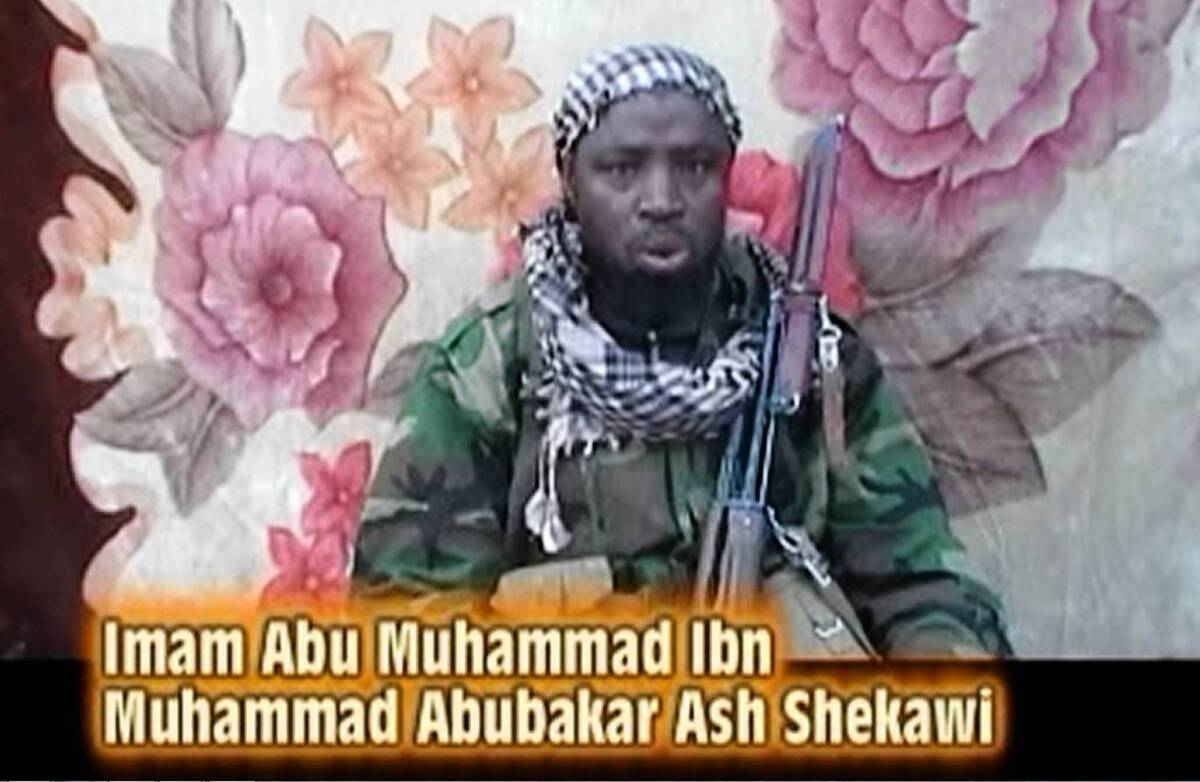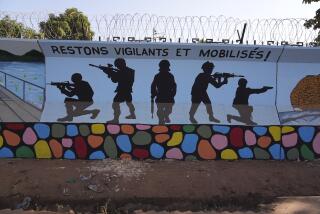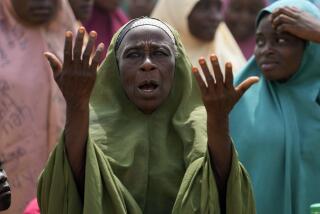Nigeria officials disagree on death toll in recent fighting

KANO, Nigeria — Local government officials and a military spokesman in Nigeria agreed that security forces and Islamist militants had battled in recent days in the country’s far northeast. But they offered widely varying accounts Monday of how many people, including civilians, had been killed.
Some officials said about 185 people were slain in the clashes, with some residents blaming government troops in part for the deaths. Security officials put the number lower.
The fighting began Friday in Baga, a fishing community near Lake Chad, but news of the violence reached Abuja, the capital, only late Sunday. Troops from Niger, Chad and Cameroon, part of a multinational task force to fight cross-border crime, were also involved in the clashes, according to witnesses.
Lawan Kole, chairman of Kukawa municipality, which covers Baga, said local authorities buried 185 bodies.
“Some of the bodies were burned beyond recognition, so it has been very difficult to establish their identities,” Kole told Gov. Kashim Shettima of Borno state, who toured the town Sunday. Baga is located in Borno. “I can’t say how many of these bodies were of residents or soldiers or militants.”
Nwakpa O. Nwakpa, a spokesman for the Nigerian Red Cross Society, said 187 had been killed and 77 were hospitalized, and that 300 houses were burned down.
But Borno military spokesman Sagir Musa said the reported death toll was highly inflated. “There could have been some casualties, but it is unthinkable to say that 185 people died,” Musa said. “On my honor as an officer, nothing like that happened.”
Nigeria has been grappling with a devastating rebellion by an Islamist militia, Boko Haram, that has left thousands dead in recent years. Despite a heavy military crackdown, authorities have been unable to halt attacks or weaken the group, which is popular in parts of the north.
Boko Haram opposes secularism and Western-style education. Its fighters have blown up bank ATMs and cellphone towers and attacked police stations and churches. In 2011, the group carried out a suicide bombing at the United Nations headquarters in Abuja.
Hundreds of Baga residents who fled into the bush during the battles began returning Sunday to find homes burned to the ground or heavily damaged.
Babagana Adamkolo, a resident, said the fighting broke out after Boko Haram gunmen attacked a sports viewing center and shot at a man, who managed to escape. In many parts of Africa, small outlets broadcast sports matches on cable TV, and people pay to watch.
Adamkolo said a large contingent of Nigerian security forces arrived and “went on a shooting spree and set homes on fire. They opened fire on anybody within sight. Women, children and the elderly were not spared. Many people are still missing — they have not been seen since they fled the troops’ attack. We fear some of them might have plunged into the lake and drowned to escape military bullets.”
During the intense fighting, security forces and Boko Haram fighters exchanged automatic-weapons fire in civilian neighborhoods. Military officials said the militants deployed heavy machine guns and rocket-propelled grenades and used the civilian population as human shields.
Groups such as Human Rights Watch previously have accused Nigerian security forces of indiscriminately killing civilians in revenge attacks on Boko Haram.
After a tough military crackdown on the militants in the Borno town of Maiduguri, the rebel group’s stronghold and birthplace, many fighters fled to remote villages on the border with Chad and Cameroon, including Baga.
The battles between Nigeria’s military and Boko Haram came just days after President Goodluck Jonathan offered an amnesty to the group. It also followed the release Friday of a family of French hostages held by Boko Haram.
Jonathan set up a committee last week to implement the amnesty and surrender of weapons. However, the heavy fighting over the weekend raises doubts about the likelihood of Boko Haram agreeing to an amnesty.
Special correspondent Abubakar reported from Kano and Times staff writer Dixon from Johannesburg, South Africa.
More to Read
Start your day right
Sign up for Essential California for news, features and recommendations from the L.A. Times and beyond in your inbox six days a week.
You may occasionally receive promotional content from the Los Angeles Times.






